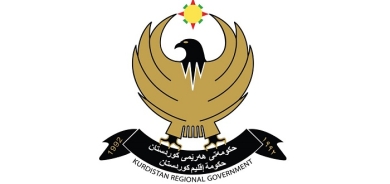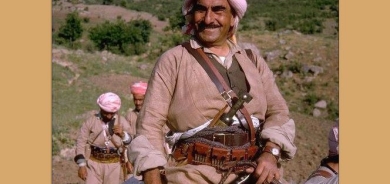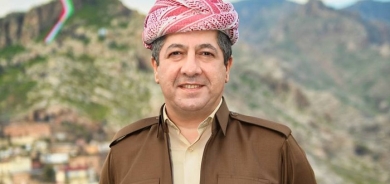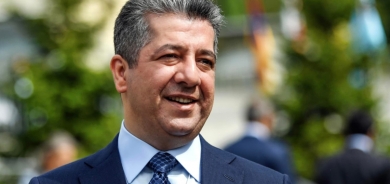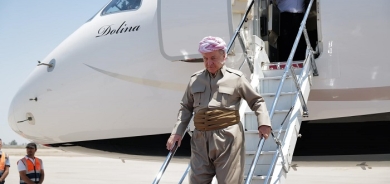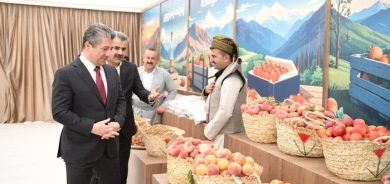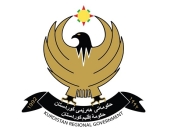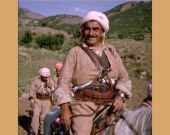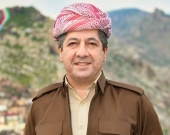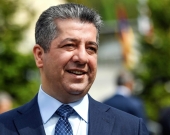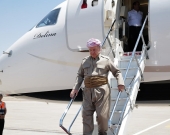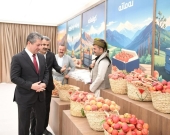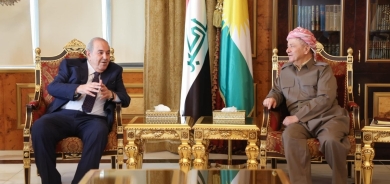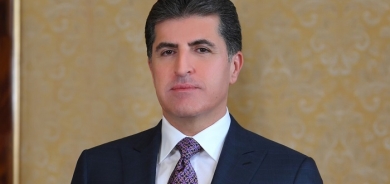Redirecting the problems from pursuing the politics of power to the power of politics and the building of peace system


Descartes has said: "Big laws have organized the universe, but they are simple laws." This quote of Descartes, which is the product of scientific development and the beginning of the end of medieval centuries and entering into Enlightenment and understanding peace and tolerance, brings us to the understanding that the laws prepared by humans on the planet earth, are also big and superior, but they are simple, embodied in the human body. They just need a positive will so as to provide happiness to the humans. Therefore after Descartes and when the second scientific era started by Newton, Kant began the second waves of intellectuality, and human awareness entered another level. Thinking about organizing the universe transforms into thinking about organizing and creating peaceful relations between nations and ethnicities, and putting an end to wars, freedom must reflect in peace.
If the human thinking about the universe and its elements requires a science that is called physics or natural theory, then the freedom laws also require a science which is called morals or the theory of morals. The Kant's quote is the end of his book "Practical Mind Criticism". His quote means he is surprised by the height and the way of organizing the sky, stars, planters, and the method of how the ethics code works. As much as humans think about the largeness of the laws and codes that have organized the universe, when they think about the value of the moral code, it gives new understanding for the happiness of the humans themselves.
But the main question here is, the morals code that Kant says they are inside the human, how much can they control the negative sides that lead to the mind's talents, such as cleverness, smartness, leadership, courage and clear-goal target, which often these things led to echoism. Instead of producing happiness, it creates war and violence. The correction of such negativities needs a positive will. But then the question would be, what is positive will and how is does it look like? In his book code of Metaphysics, Kant responds: "Among all the tasks that are being done in and outside the world, we cannot unconditionally consider them as positive, but only one task can and that is positive will."
Therefore, the positive will is what controls the negatives sides of the results of human mind; it transforms human from war to peace and it builds prosperity and peace in the society and the different communities. This method tells us that the positive will is that rational witness that does not support any disobedience or fallouts of human mind product; it does not agree to stop the efforts of positive direction. That’s why this rational witness on the human behaviors becomes the power that we cannot abandon for the sake of organizing human life and the society. But how is this power recognized? Through its effects or the successes it achieves? Scholars say not necessarily every time and in every field one can get success from positive will or the counter its negative effects. The positive will bears its value in itself, same as jewel. No one can reduce its value or increase its value. This jewel does not need others to praise for or to attract others attention who undervalue the jewel.
The emergence of positive will for operating moral law is not the enforcing of a method for some people to abide by it, rather, it is just an reason for the organizing of the assistance and cooperation between the other characteristics inside the human as an individual and as the society, so as they all effort for the happiness and prosperity of the society. This assistance and cooperation between the individuals, as a public moral philosophy, is transforming towards building metaphysical morals, which can be called the laws of liberty who do not exist if there won't be peace and security in the society. Thus we can say the positive will for the functioning of the moral laws, is the initial step for building social peace and peace between different nations and ethnicities. This positive will, which produces tolerance and coexistence by the moral laws, rejects the centuries old quote that state "war is launched for the sake of providing peace". History has told us that war is for war and ceasefire, it has never produced peace.
For the problems and issues in the Middle East, like the Kurdish issue, the logic of war for their solutions, has become part of the social structure, preventing any effort to achieve any peaceful solution. Let's take a look at the political agreements between Egypt and Israel, or Palestine and Israel, when Jimmy Carter was able to make Anwar Sadat and Minahim Begin shake hands and sign the Camp David Agreement. However, the agreement was unable to prevent violence and the assassination of Sadat. The same for Bill Clinton when he brought up the Oslo Agreement between Yasir Arafat and Isaac Rabin, again, failing to produce peace and Rabin to keep his life. These two examples tell us that since the use of violence has become part of the social network of both Arabs and Israelis, accepting peace or the changing direction of the events towards peace is absolutely not easy.
Building peace in Iraq and the region
Since the establishment of the Iraqi state, the problems and crises of the country, has always been within the framework of the use of violence, oppression and suppression of the other. That’s why this history has produced nothing but bloodshed and mass killings. Moreover, violence and the denial of the other has become part of the Iraqi society's different communities’ formations. Now the Iraqi politicians have to make their decisions in this social formation of the Iraqi Arab people, so as get votes and prove themselves. Those who think of solving the problems and issues through peaceful means and by dialogue are not respected. This is not a theoretical case or the assumption of political analyses method, but, this is the answer of the reality we daily see, that tells us one must not distinguish between the political and social reality. We have to keep in mind that the political agreements, meetings and decision-making together have not solved the problems. Actually, the political efforts should be followed by parallel actions for providing ground for their implementations.
From this perspective, we can conclude that the collapse of the Baath regime, didn't bring about change in the Iraqi Arabs social formation thinking for solving the problems of the people of Kurdistan in Iraq, it didn't change the problems between the successive Iraqi governments and the people of Kurdistan from a denial policy of their rights to recognition and coexistence. This means that in the last eight years, there are efforts to rebuild Iraq with the 80 years old mentality of the Iraqi Arab social formation; that’s why there are no suitable conditions for implementing the political agreements.
There are several important notes here:
1- When we say violence and denial of each other has become part of the Iraqi Arab social formation, we don't mean that they have these elements naturally. We rather mean that along the last 80 years, all the regimes have planted the seeds of violence and the denial of each other in the Iraqi Arab society. Even worse, in order to make these seeds grow better, the regimes have resorted to Islam and Arab religious men to give Halal Fatwa (religious decree of permission) of the killing of Kurds. Later in the years, they used a Holy Quran verse name “The Anfal” to genocide the Kurds. To what extend the Kurdish leadership and above all Mustafa Barzani sensed that this is the reality of the Arabs social formation- particularly Iraqi Arabs- against the Kurdish rights? Our history tells us that Mustafa Barzani long before the September Revolution of 1961, during the Second World War when the war was between the nations around the world, believed that peace between the nations and ethnicities cannot be obtained by war, and the best period of war, is when it creates a ceasefire between the parties, and if our final aim is peace, then war has to be destroyed from the roots. In his first steps to prevent war and the cleansing of each to become part of the social formation of the people of Kurdistan and Arab in general and Iraqi Arabs particularly, Mustafa Barzani sent his historic letter to Abdul-Rahman Azzam Pasha, who after establishing the Arab League became its first president. Barzani extended the fraternal relationship hand to the Iraqi Arab people and demanded the peaceful and fraternal coexistence of Kurds and Arabs. Did this letter impact on the change of Iraqi Arabs perspective for the Kurdish-Arab fraternity? Indeed, it had lots of effect. Despite all the efforts of the regimes for changing the Iraqi Kurds struggle with their regimes into Arab-Kurdish conflict, Barzani's efforts limited such efforts. And it was this that led the great Shiite cleric, Muhsin Hakeem, to oppose the Iraqi regime's demand to make the Kurdish killings a Halal.
The last 80 years tells us that in the Iraqi society there was a belligerent will to prepare Iraqi Arabs social formation to war, opposite to the revolution in Kurdistan which had a positive will and encouraged the people towards toleration, brotherhood and coexistence.
2- Mr. Masoud Barzani, as one of the Mustafa Barzani's students, not only proceeded with the same doctrine; he even extended that concept and turned into a method of solving the problems. Obviously, their time contexts were different, in which in the latter the problems had several dimensions that required their solutions to change from force to peace. Among those issues that were very sensitive, was the reorganization of the internal politics of the Kurds and forming a common front to battle the dictatorship. He also broadened the alliances with the Iraqi opposition parties. All of these were made in order to create a common struggle that will lead to change in the perspective of the Iraqi Arabs on how to solve the problems. In the 1991 Uprising, Masoud Barzani, as the leader of Kurdistani Front, he released all the Iraqi army prisoners that had become captives by the people and Peshmargas. This meant that Kurdistan does not consider those soldiers who were brought by the Iraqi regime to fight the people of Kurdistan as guilty.
3- In 2003, just a few months before the Iraqi War, President Barzani told all the Iraqi political parties and personals, the only way for building a new Iraq whereby all its communities can live in peace, is to draw a new page and think about the future, and not the past and doing retaliations. This message contained a positive will and was his perspective for changing the solutions for the problems from using force to peace and accepting each other. After the War, the Iraqi Arabs forgot this message and its outcome is evident for all.
Barzani's will for peace and coexistence
As initially explained in this report, the positive will for the operation of the moral laws, achieving prosperity and happiness for the society and the peaceful coexistence between different nations and ethnicities, is neither overvalued by success, nor undermined by failure. Here that we mention Barzani's peaceful will, we want to say, no matter how long you continue on war, violence and denial of the other, you still need to get back to the will that Barzani intends to create assistance and cooperation between the communities that would instead of violence create peace. The efforts of Barzani can be categorized according to:
a- Kurdistan: The president of Kurdistan makes serious efforts to prevent the reemergence of Kurdish-Kurdish conflict between the political parties and forces. He wants to solve all the problems through dialogue and negotiations, for this purpose he has created an important national ground so as to continue these dialogue and understandings based on the interests of the people of Kurdistan. The outcomes of his efforts in Kurdistan Region can be seen in the conditions ready for the restart of dialogue between the ruling and opposition parties and all together assist the reform and building process launched by the Presidency of Kurdistan.
b- On the Iraqi level and Kurdistan Region-Baghdad relations:
Obviously, President Barzani's Erbil Initiative led to the establishment of the current Iraqi government, and the selection of the parliament and presidency leaders. The principle of this Initiative was approachable mechanism where all the Iraqi communities can meet together. The Iraqi political parties came to the conclusion, if it was not to the Erbil's Agreement; peace in Iraq would not be prevailed, nor would be the Iraqi unity preserved. One year after his Initiative, due to the absence of positive will by the Iraqi prime minister to implement the Agreement, we are back to square zero and this has created a serious threat to the Iraqi unity. But the essence of the Agreement is still there, because it was the product of a positive will which will not have an alternative.
c- On the Region's peaceful relations with neighbors:
What was reported from the recent official trips of President Barzani to Turkey, Iran and several European countries was the president's re-emphasizing on his view of solving the problems and changing the course of the problems from pursuing force to pursuing peace. President Barzani's messages to all these parties were:
i- Since we are unable to change geography, we as Kurds and all nations in the area, have to live together as neighbors. This requires agreeing and respecting each other, in order to create mutual interests and have a peaceful coexistence.
ii- Barzani's message was only clarifying a truth and a roadmap on how to build peace in the area. Therefore, the message is part of a peace picture and the other parties should be also involved to complete the whole picture. The most important requirement in order to have peace, is that all, be they the neighbors, or the Kurdish force who now use weapons, should get to the belief that war does not solve any problem.
iii- Barzani's message is not intervening in other country's affairs, nor is it thinking instead of the Kurds of other parts of Kurdistan. Barzani's message is to distance conflicts from Kurdistan Region. Barzani, as many other times, said: "We won't become part of the conflicts between the Kurdish forces and the neighbors, but we are always ready to play an effective role for solving the problems peacefully, as the Kurds of other part desire, not as others want to."
On October the 1st, 2010, President Barzani gave a speech at the Democratic Alliance Conference in Roma, in which he mentioned that he often hears that in those societies where there are deep cultural, ethnic and religious divisions, the value of universal human rights does not exist anymore and Iraq is often cited as an example which cannot create an existent friendly environment between the religious, ethnic and sectarian communities. "Although I have seen the mass butchery of my own people, the destruction of my own country's villages, the mass killings of Kurdistan's children and women in the mass graves, I want to tell you that it is not true that it is impossible to create harmony amid the differences. Because we all share some human values and we all want to leave in security," said the President. Reading the underlying messages of those words, we can feel that Barzani wants to tell the world, the differences can be exist together if the common points of the human values are combined and recognized and if those rights not to be denied to anybody based on their cultural, religious and ethnic differences. What we learn from President Barzani for peace and coexistence is that we have to pursue the common and shared principles that provide us and other societies with security and prosperity. Though this way might seem difficult, it is the only way into that direction.
Translated by: Ari Mamshae

